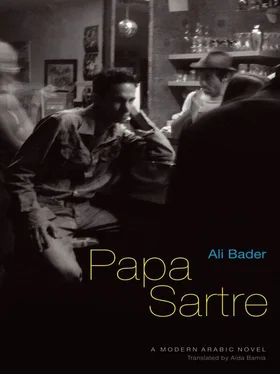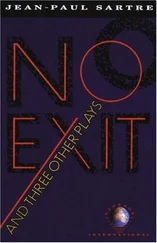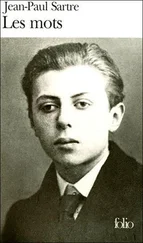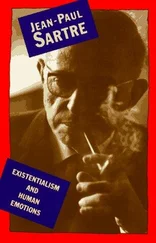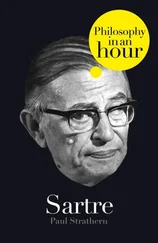Ahmad was surprised to hear him declare, “Who is this clochard who intimidates me?!” Ahmad agreed with him, somewhat concerned by his reaction, and asked whether he should go talk to Si Muammar. Abd al-Rahman asked him to wait a little. While Ahmad was waiting for an answer, the philosopher pretended to be reading a newspaper to give himself time to regain his courage and come to a decision. Abd al-Rahman instructed Ahmad, “Go to him and tell him that the Iraqi existential philosopher wants to discuss with him topics related to existentialism in Algeria.” Ahmad rushed over to Si Muammar’s table, approached the man, and whispered a few words in his ear, causing both Si Muammar and Nader to burst out laughing. Abd al-Rahman watched closely, his heart racing.
Ahmad returned to his friend in a state of confusion, not knowing what to tell him, and at a loss as to what should be their next step. “Let’s run.”
“What?!” asked a surprised Abd al-Rahman.
“I am telling you, let’s get out of here.” The philosopher didn’t understand.
“Why? What did he tell you?”
Ahmad explained, “He made fun of me. He told me, ‘let him go to Sartre and discuss the subject with him.’”
Ahmad was shaking and ready to bolt. Abd al-Rahman was deeply humiliated and saddened, not only because this Algerian clochard had made fun of him and insulted him, but also because he had missed an opportunity to fulfill his aim. This turn of events meant that he would never be able to reach the waitress of Café de Flore. He was furious because Ahmad had failed to find the right words in French to accomplish his mission; he probably hadn’t expressed himself properly. Though innocent of all those accusations, Ahmad accepted responsibility for his failure, “Yes, it’s my fault. Please forgive me.”
While Ahmad was absorbed in his mea culpa, Si Muammar and Nader approached the philosopher and asked if both men were Iraqis. Ahmad confirmed their origins. Abd al-Rahman remained very calm as Nader and his friend sat down at their table. Abd al-Rahman eyed Si Muammar rather anxiously, and to break the ice Si Muammar asked him how long he had been in Paris.
“I arrived three years ago,” said Abd al-Rahman.
The philosopher did not feel like engaging in a philosophical discussion with Si Muammar while Nader was present. He wanted to do that another day in the presence of the waitress, in order to impress her and to show Si Muammar what it meant to be a philosopher. He engaged in casual conversation, reluctant to reveal his true intentions. Nader, a simple, goodhearted young man, soon turned the conversation to the direction of philosophy, asking Abd al-Rahman whether he was an existentialist.
“Yes, I am an existentialist. What about you two?”
Nader said no, and Si Muammar said, smiling, “This depends on one’s understanding of existentialism.” He then lit a cigarette without offering any to the others. Abd al-Rahman quickly took his pack of cigarettes from his coat pocket and offered one to Nader, who declined, explaining that he was not a smoker.
Si Muammar turned to Abd al-Rahman and asked, “What does existentialism mean to you?”
Abd al-Rahman’s answer was ready, in French, one that he had memorized from one of the most famous philosophy encyclopedias of his time. Without hesitation or embarrassment he launched into a comprehensive and complete definition of existentialism. He sat back, eyes half closed, moistened his lips with his long red tongue, took a deep breath, and said, “Existentialism is a tendency hostile to the absolute outlook that represses cases of differences and absence of continuity in practical life. This enmity,” he took a deep puff from his cigarette, “takes the form of profound self-analysis and calls for the priority of existence over essence. Therefore, it takes a biased position in favor of the partial,” he took a light puff, “and the material against any effort meant to reach a complete doctrine under which all actions can be classified. This is where the existential philosopher finds sympathy for a doctrine that confirms the superiority of the active mind over the theoretical mind.”
He hardly had time to catch his breath after delivering this amazing definition of existentialism than Si Muammar and Nader burst out laughing noisily. They cried laughing, and Nader couldn’t contain himself. Ahmad and Abd al-Rahman were silent in their total disbelief of the reaction of the two men. They could not understand why these two stupid men would laugh at a definition available in the greatest and most expensive encyclopedia of philosophy in France, Larousse Encyclopedia .
Si Muammar explained apologetically that he wasn’t very familiar with philosophy. “Pardon me, my friend. I don’t understand this philosophy stuff at all. I’m a down-to-earth fellow, fun-loving and pleasure-seeking. I like drugs, I’m lazy — this is my philosophy.”
Upon hearing his explanation Abd al-Rahman and Ahmad burst out laughing, perhaps a little artificially. Abd al-Rahman said, “Excuse me, Si Muammar, but do you call those insignificant inclinations a philosophy? Those are things anyone can do. Even Ahmad, who understands nothing, can do them.”
Si Muammar said in his own defense, “Why not? It’s a philosophy that depends on the art of living an idle life.”
Indignant, Abd al-Rahman asked, “Do you consider laziness a philosophy!”
Si Muammar went on explaining his way of life. “It’s true; I don’t work and I live off my girlfriend. I’m a parasite who feeds on other people’s blood; this is my philosophy in life.”
Ahmad asked him, “Are you proud of yourself?”
Before he could answer, Abd al-Rahman intervened. “Ahmad lives at my expense but he doesn’t boast about it.” He had no qualms about embarrassing his friend.
Si Muammar was amused and replied, “Why not? I am proud of it. Take colonialism for example. It feeds on the blood of the people that are colonized. I rejected it. I didn’t put myself at its disposal. I don’t contribute to life at all. I came to France to live off the colonizer’s female population, and I’m totally at peace with myself. Their men sleep with our women there, and we sleep with their women here.” Nader was greatly amused by Si Muammar’s words.
Abd al-Rahman asked Si Muammar if he was studying philosophy at a Parisian university. “No,” he replied. “I studied literature but I didn’t finish my studies. I discovered that it all was a terrible lie, so I stopped. Those are all falsified facts, believe me.” Abd al-Rahman asked him to explain what he meant, and Si Muammar happily obliged. “Literature and philosophy,” he said, “are falsified facts established by the powerful and the wealthy, and I don’t care for either literature or philosophy.”
“What interests you then?” asked Abd al-Rahman.
“The sorcerers and the exiled.” Nader interrupted. “Those are the wise men sleeping in the brothels in a fog of hashish.” He then laughed loudly and was joined by Ahmad. Pressing his position, Abd al-Rahman asked, “Do you consider such matters a philosophy?”
Nader explained, “It’s passive resistance.” Abd al-Rahman asked him where he lived and evoked a lengthy explanation: “I live close to the Debussy Market. I have a room that overlooks the market, and I sleep to the sound of merchants, greengrocers, and the shouts of the grilled-chicken sellers. I like this place because it reminds me of the popular souks in the Arab world.”
Soon after, their female Algerian friend arrived and greeted them with a hoarse bonjour in what sounded like the voice of a man coming out of the hammam. Si Muammar introduced her as his friend Aisha, calling his new acquaintances “our philosopher friends from Iraq,” a designation that Abd al-Rahman disliked and considered a mockery. When they left, Abd al-Rahman and Ahmad sat face to face. The philosopher was clearly dismayed by the insignificant issues “that clochard” considered to be a philosophy.
Читать дальше
